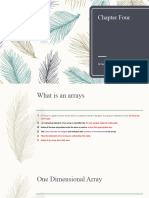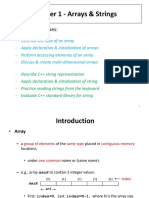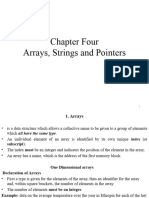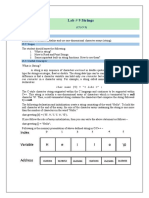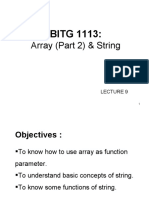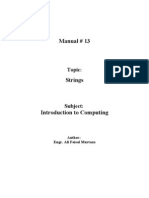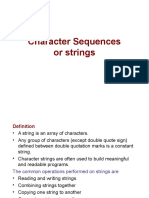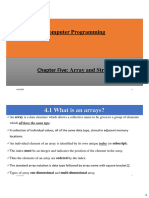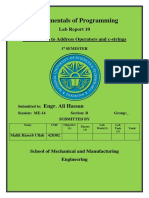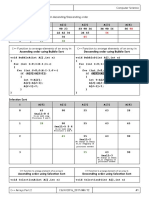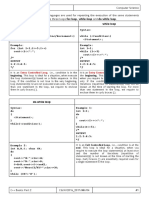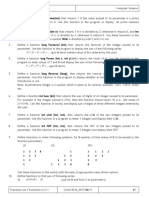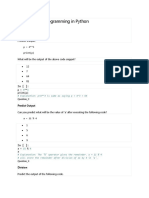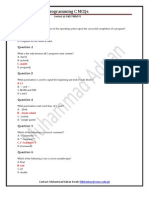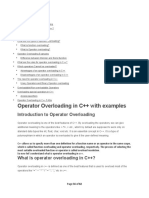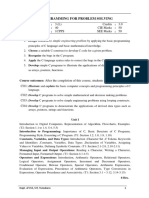0% found this document useful (0 votes)
69 views5 pagesArrays of Character & Strings
The document discusses arrays of characters and strings in C++. It provides examples of declaring, initializing, and manipulating character arrays and strings using built-in and user-defined functions. Key points covered include initializing strings, reading strings using cin and gets, comparing strings, and functions for operations like copying, reversing, concatenating, and extracting substrings of strings. Pre-defined string functions from the string.h header file are also explained.
Uploaded by
Lakshay BansCopyright
© © All Rights Reserved
We take content rights seriously. If you suspect this is your content, claim it here.
Available Formats
Download as PDF, TXT or read online on Scribd
0% found this document useful (0 votes)
69 views5 pagesArrays of Character & Strings
The document discusses arrays of characters and strings in C++. It provides examples of declaring, initializing, and manipulating character arrays and strings using built-in and user-defined functions. Key points covered include initializing strings, reading strings using cin and gets, comparing strings, and functions for operations like copying, reversing, concatenating, and extracting substrings of strings. Pre-defined string functions from the string.h header file are also explained.
Uploaded by
Lakshay BansCopyright
© © All Rights Reserved
We take content rights seriously. If you suspect this is your content, claim it here.
Available Formats
Download as PDF, TXT or read online on Scribd
/ 5
